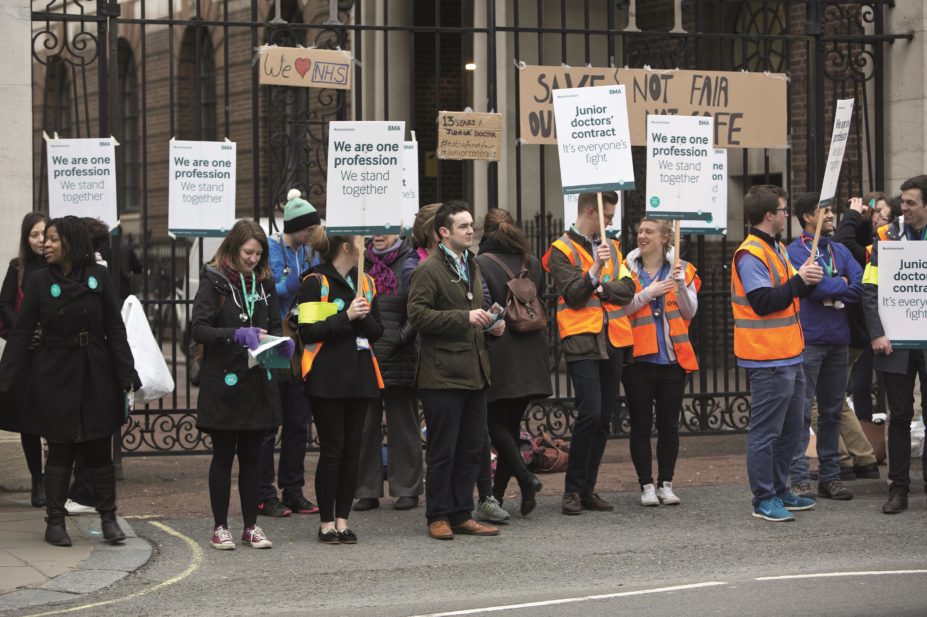
Ms Jane Campbell / Shutterstock.com
Junior doctors in England will strike for the second time on 10 February 2016, after the British Medical Association (BMA) and the government again failed to reach an agreement over a new contract.
The BMA had originally planned a full 24-hour walk-out, meaning no services would be provided by junior doctors. But they will now provide emergency care only for 48 hours — as they did during a previous strike on 12 January 2016.
Johann Malawana, the BMA junior doctors committee chair, says the strike is going ahead because the government is “digging its heels in” over key issues.
“The government’s entrenched position in refusing to recognise Saturday working as unsocial hours, together with its continued threat to impose a contract so fiercely resisted by junior doctors across England, leaves us with no alternative but to continue with industrial action,” he says.
However, Malawana adds that progress has been made on a number of issues and that this has been due to the involvement of David Dalton, who was appointed by health secretary Jeremy Hunt to negotiate on behalf of the government. Dalton is chief executive of Salford Royal NHS Foundation Trust.
In a letter to the chair of the BMA, Hunt says the government made a “significant offer on the extent of ‘plain time’” and is “ready to discuss these matters”.
The government says it wants to “modernise” the junior doctor contract and that this is wrapped up in plans to provide a seven-day service to patients. Malawana says the government “misrepresents junior doctors as a block to a seven-day NHS, but they already work every day of the week”.
The strike will begin at 8am 10 February and last until 8am 12 February 2016.


